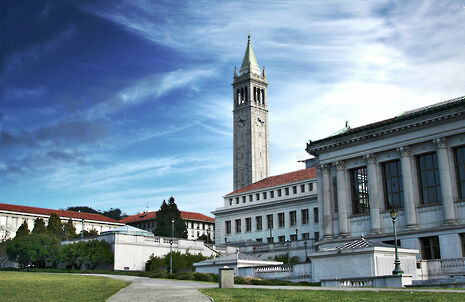Universities must do better to promote and protect free speech
Reflecting on the recent scandal at Sidney Sussex, as well as UC Berkeley, Anna Cardoso argues universities must rally against bigotry, not dissenting opinions

A Californian university was gearing up for violent clashes this week. Riot police were preparing themselves. Groups of anti-fascists were taking buses into the small college town, ready to agitate and perhaps throw Molotov cocktails, as they did at a protest in February on the same campus. All the fuss was about UC Berkley’s ‘Free Speech Week’, a week organised by a group of students who had invited various alt-right pundits like Milo Yiannopolous and Steve Bannon to speak. The university, and the nation’s media, have been battling about it since.
“Several such debates have ended in riot police intervention in America. British disagreements on the issue tend to be politely reserved for column inches.”
In the age of Trump, words matter more than ever. On campuses on both sides of the Atlantic, students are battling over who gets to say what and where they get to say it. Here in Cambridge, Sidney Sussex has been slammed over its decision to host an anti-gay Christian group. There is, of course, some nuance in the discourse on either side of the ocean. Several such debates have ended in riot police intervention in America. British disagreements on the issue tend to be politely reserved for column inches.
Yet, the fight is the same. Should people that some students disagree with be allowed to speak on campus?
It’s funny how this valid and reasonable discussion can so easily be hijacked by pundits. Dusty old men (I’m looking at you Nigel Lawson) and zealous right-wingers have labelled this issue the blight of our age. They imagine a world in which anyone who isn’t a socialist, feminist, Corbyn-hoody wearer is barred from taking the lectern. Don’t buy their spin. The very people who argue that there should be no limitations on what people have a right to say, for example Mr Trump, have argued that football players should be fired from the NFL for taking the knee in protest of police violence during the national anthem. Only extremist libertarians believe in truly unrestricted free speech. Those who denounce students in disdain for their safe spaces would do well to remember that.

Many of the alt-right figures who were due to appear on the Californian campus argued that their xenophobic and racially provocative speech must be protected for the sake of democracy, otherwise we set a dangerous precedent of censorship and oppression.
However, hate speech should not be protected as free speech – an idea which seems oddly novel to Americans. The US’s frustrating tendency to cling to every last punctuation mark of its constitution doesn’t only hold the country back on the famously ridiculous inability to reign in its gun culture. It has prevented US public colleges from barring Richard Spencer, the infamous white supremacist. It has also framed much of this debate about free speech in legal, rather than moral terms. Thankfully the UK is not held back by such restrictions – we can simply bar such people from our universities.
“Once racist ideas grab people’s attention, they do not die under the overwhelming intellectual weight of noble debaters’ arguments; they gain popularity and circulation among certain groups.”
But some centrist critics would argue for ‘Critical Race Theory’, the idea that we should let racists air their views so that we can shut them down and show them why their logic is wrong. However, racists think they are exposing important truths about society; their mentality is not something we can diagnose and cure. They are simply telling their version of truth that we happen to despise. Racism is not logical – it is exactly the opposite. Once racist ideas grab people’s attention, they do not die under the overwhelming intellectual weight of noble debaters’ arguments; they gain popularity and circulation among certain groups. These ideas infect some people’s minds.
Yet, students can and have gone too far on this well-meaning crusade. Their goal is to prevent students who feel unwelcome and attacked on mostly majority-middle-class-white campuses from having to face further attacks on their identity. In practice, this has shut down some debates. We should not ban people who argue that the British Empire was a benevolent force. We should not ban Germain Greer because of her views about femininity and transgenderism. These discussions have intellectual dimensions; there is real debate to be had here. I’d even say we should invite Nigel Farage, a man who has been known for his race-baiting campaigning. He has ideas to debate, even if they are flawed. We should let him speak to expose the weakness of his ideas to better arguments.
When a college hosts a group who argues that homosexuality is an abomination, where is the room for discussion? What do we really learn from this? Our ideas are not challenged, and we hurt already vulnerable students in the process.
When we have a president of the USA who is happy to endorse sexual assault, who advocated for violence against his opponents and who has become an apologist for neo-Nazis, we need to look to our academic institutions to do better. This does not mean censoring debate that we can learn from, or barring speakers who we disagree with. This means standing against bigotry. This means not allowing people to spew their vitriolic racism, sexism, homophobia, and xenophobia on our campuses on either side of the pond. We get enough of that from the president of the United States, thank you very much. We need to set a better standard
 News / Judge Business School advisor resigns over Epstein and Andrew links18 February 2026
News / Judge Business School advisor resigns over Epstein and Andrew links18 February 2026 News / Hundreds of Cambridge academics demand vote on fate of vet course20 February 2026
News / Hundreds of Cambridge academics demand vote on fate of vet course20 February 2026 News / Petition demands University reverse decision on vegan menu20 February 2026
News / Petition demands University reverse decision on vegan menu20 February 2026 News / CUCA members attend Reform rally in London20 February 2026
News / CUCA members attend Reform rally in London20 February 2026 News / Gov grants £36m to Cambridge supercomputer17 February 2026
News / Gov grants £36m to Cambridge supercomputer17 February 2026









